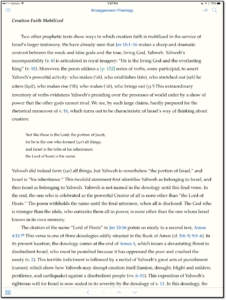
Currently the William Marcellus McPheeters Professor Emeritus of Old Testament at Columbia Theological Seminary, Walter Brueggemann is one of the best known Old Testament theologians alive today, specifically associated with postmodern Old Testament theology. What does that mean? To answer that question, I have condensed and adapted a review of Brueggemann’s Theology of the Old Testament I wrote a few years ago. If you are unfamiliar with Brueggemann’s thought, the perspective described below will be fairly representative of many of his works.
To begin with, Brueggemann rejects attempts to find certitude regarding the biblical texts, and pursues an ongoing theme in his works in which God always sides with the oppressed. From his perspective, a demise of historical criticism in a postmodern age is welcomed because all readings of the text are placed on the same level.
In describing postmodern interpretation, Brueggemman believes that it must take place in a “pluralistic context.” He suggests the day when interpretation was pretty much the same and controlled by a small number of academic elite is now over. Brueggemann proclaims, “The postmodern situation is signified precisely by the disappearance of any common, universal assumptions at the outset of reading” (Theology of the Old Testament, p. 62).
Of course, not all will agree with Brueggemann here. One may get the impression from his writings that every interpretation is on equal footing except that of anyone who holds to evangelical interpretations or interpretations rooted in the methodologies of historical criticism over the last century. But has there ever been a consensus among biblical scholars—Old Testament or otherwise?
Brueggemann may see himself as a kind of liberator for the biblical text when he makes the statement, “We now recognize that there is no interest-free interpretation, no interpretation that is not in the sense of some interest and in some sense advocacy” (Theology of the Old Testament, p. 63 ) Of course, many will hardly see this as a new revelation. Certainly, no one is ever completely objective; we know that we carry presuppositions, and from that assumption, Brueggemann is right when he states there are no “interest-free” interpretations. However, the reader will have to decide how to weigh opposing interpretations.
Regarding the biblical text, Brueggemann sees it open for continuing interpretation. In a section he calls, “The Dynamic Practice of the Torah,” Brueggemann says that
Christians who seek to understand what is intended in Torah will have to move beyond conventional, polemical caricatures of legalism, in order to ponder an interpretive practice that is (a) intransigently normative and yet enormously open to adaptation; and (b) has an uncompromising sovereign at its center, but with a capacity to attend in delicate ways to the detail of its existence. This elasticity, moreover, invites and requires endless, ongoing interpretive work, never reaching its closure, but always being responsive in ways that preclude final settlement. (p. 595)
Some may be concerned that the above understanding will in the end undermine any possibility of the Bible containing ultimate authority or truth. If the scriptures can be repeatedly reinterpreted with no set limits on the method of interpretation, and without ever a possibility of achieving the right interpretation, final for all time, then all truth becomes relative. However, this may be exactly what Brueggemann wants.
On the other hand, while saying that we can have no presuppositions about the text, Brueggemann is giving them to us. Besides the Scriptures being open to continuing interpretation, he states that the Old Testament is a continuous dialectic and that revelation is merely testimony—not by God but rather Israel’s utterances about God.
Click/tap the image on the left to see a larger view of Brueggemann’s Theology of the Old Testament in Accordance Mobile on the iPad.
As mentioned, we are making available 23 titles by Walter Brueggemann today. They range in subject matter from the intensely theological to the highly personal. Brueggemann has always had one foot in academia with the other firmly placed in the church. His writings include not just writings on Old Testament theology but also preaching and Christian education. The most economical way to obtain Brueggemann’s works for your personal Accordance Library is to purchase all volumes together. However, we have also sorted his books by theme and will be selling them in sets of three, four, and five volumes.
Below is a list of several bundles of Brueggemann products. In addition to the bundles, each volume is also available for individual purchase.
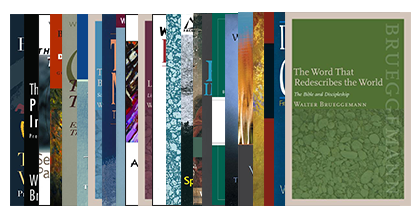
The Accordance Brueggemann Collection (23 Volumes)
List Price $531.70; Reg Price $379 | Buy Now
Contains all 23 volumes of Brueggemann’s works listed below. In addition to being
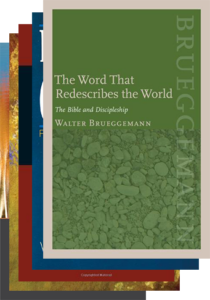
The Practical Brueggemann Bundle (5 Volumes)
List Price $118; Reg Price $89.90 | Buy Now
- Awed to Heaven, Rooted in Earth: Prayers of Walter Brueggemann
- The Creative Word, 2nd Edition: Canon as a Model for Biblical Education
- Inscribing the Text: Sermons and Prayers of Walter Brueggemann
- Interpretation and Obedience: From Faithful Reading to Faithful Living
- The Word That Redescribes the World: The Bible and Discipleship
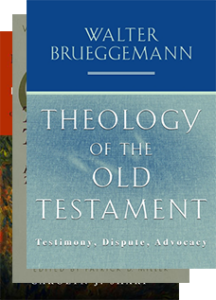
The Theological Brueggemann Bundle (3 Volumes)
List Price $109; Reg Price $84.90 | Buy Now
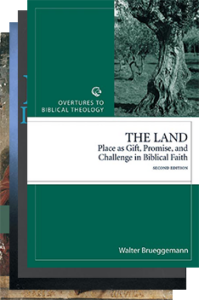
The Historical Brueggemann Bundle (4 Volumes)
List Price $84.00; Reg Price $65.90 | Buy Now

The Book Study Brueggemann Bundle (4 Volumes)
List Price $75.00; Reg Price $59.90 | Buy Now
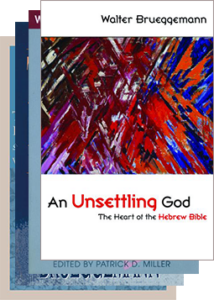
The Biblical Studies Brueggemann Bundle (4 Volumes)
List Price $85.00; Reg Price $66.90 | Buy Now
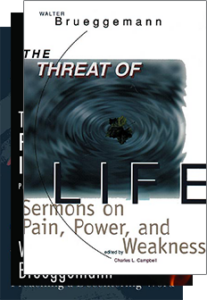
The Preaching Brueggemann Bundle (3 Volumes)
List Price $63.00; Reg Price $49.90 | Buy Now


